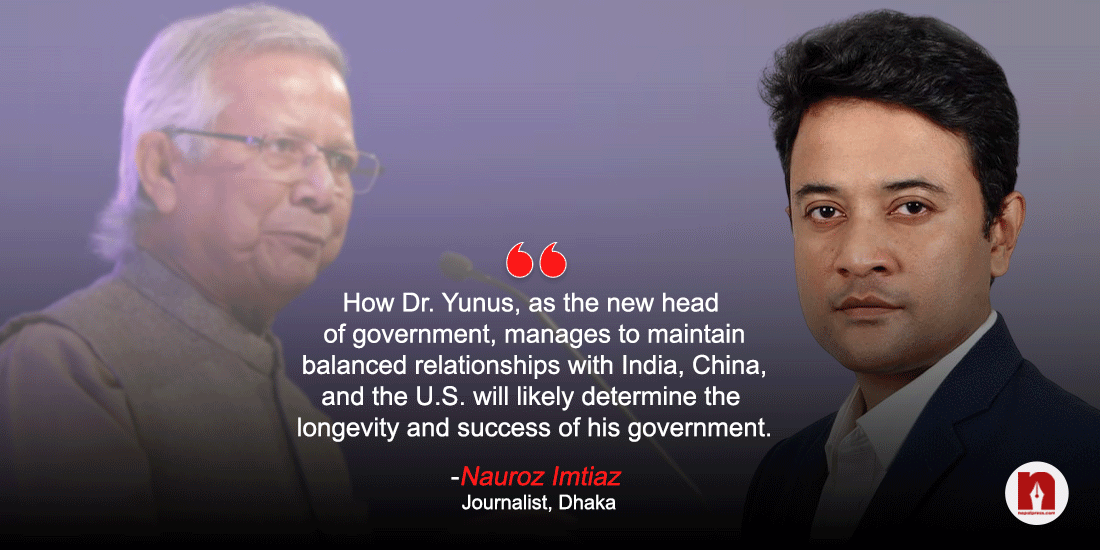Fear and Insecurity among Women: A global concern

The issue of insecurity among women is a significant concern globally, and it continues to be a topic of discussion every Women’s Day, celebrated on March 8. While efforts have been made to improve the condition of women, insecurities continue to affect them in various ways. Women are creators who hold the power to create and run the world, and the world cannot be imagined without them. However, despite the considerable progress made, women are still vulnerable in many ways, regardless of their social status or material prosperity.
I happen to meet numerous women in various settings such as workplaces, colleges, universities, tea shops, and public transportation. During our conversations and discussions on diverse subjects, I observe that many of them feel insecure about aspects of their lives, such as marriage, relationships, careers, and more. Despite the progress of the 21st century and globalization, it seems that many women still experience feelings of insecurity.
Fear is a common insecurity that women face, such as the fear of not getting married on time, not finding the right life partner, breaking up with their partners, having bad consequences, not having a good marital relationship, not being beautiful, or not having the necessary abilities. These fears affect women regardless of their background, education, or financial stability, highlighting the need for more effort to address these insecurities.
Let’s say a woman is subjected to abuse by a man and decides to take legal action against him. Initially, many people rally behind her and express their support for her bravery in speaking out. Even celebrities post stories on social media praising her. However, over time, the societal narrative shifts, and she becomes the target of blame and criticism. The prevailing sentiment is that the woman is at fault for allowing the man to abuse her. This attitude leaves her feeling demoralized, frustrated, and depressed. It’s disheartening to see a society that is quick to place blame on women and fails to hold men accountable for their actions. This is a result of patriarchal beliefs and norms that must be challenged and changed.
Let’s take another example: when girls experience their first menstruation, they undergo a series of changes – hormonal, physical, and emotional – that make them more susceptible to attraction towards men. Although this is a natural process that also affects boys, girls tend to change more rapidly. Unfortunately, when anything happens between them, such as a love affair or attraction, girls are often blamed for being careless and adolescent, whereas boys tend to conceal their emotions. Girls are scolded and demotivated by their families and society, despite both parties being equally involved. This treatment of girls is unfair and fails to understand the natural changes they are experiencing.
In cases where marriages end in divorce, women are often unfairly blamed by society and their families. Even if the decision to separate was mutual, women are viewed as the primary cause of the breakdown and are criticized for being unable to keep their marriage intact. This stigma can have long-lasting effects, as women may be ostracized by their families and have difficulty finding a new partner. Meanwhile, men who remarry are often praised and seen as moving on with their lives.
It is unfair to place all the blame on the woman for the failure of a marriage. Both partners are responsible, and it is important to recognize this. While there have been some changes in attitudes towards divorce in upper-middle-class and high-class families, the same cannot be said for the general public. We need to understand and address these issues at the grassroots level, rather than just looking at the experiences of celebrities.
I have observed that in many families, parents expect their daughters to learn household chores simply because they are girls, while they do not have the same expectations of their sons. This is where discrimination begins. If parents are teaching life skills, both sons and daughters should be taught or made to do them. Otherwise, why should only girls is expected to learn? Over time, this uneven treatment can shape girls’ mentalities differently. It is important to promote education and awareness to address this issue.
What I am trying to convey is that women’s feelings of insecurity and fear of not being accepted due to their gender stem from their upbringing in their families and society as a whole. Women should be empowered and encouraged to pursue any path they choose in life. This does not mean they should disregard everything and dominate men. Rather, they should be raised in an environment where there is no discrimination based on gender and both men and women treat each other as individuals, not just as a male or female. This is not about physical differences but rather emotional well-being. It all begins with how families raise their children.
While the situation of women in urban areas may seem good, the same cannot be said for women in rural areas, where they are still lagging behind in education and health. Even in urban areas, insecurity among women is not uncommon. The belief that a woman should get married after reaching a certain age, for example, is still prevalent in society. If a woman does not get married after reaching that age, people start judging her, demotivating her, and making her feel insecure.
Despite their education, women often struggle to secure prestigious positions and decision-making power. While some seats are reserved for women, these positions are often symbolic, and they are not able to bring about significant change. I am not opposed to the idea of reservation, as it provides opportunities for women to be uplifted and encouraged. However, it should not be merely symbolic. Women should be empowered to make significant changes in their roles.
It is possible for some people to argue that changes are taking place, and women are performing well. It is true that there are women who are popular and leading the world. However, when viewed in the context of globalization, the significant changes that we hoped for are not evident. Instead, we observe that women’s insecurity and fear are increasing day by day.
Upbringing also plays a significant role in women’s insecurity. From a young age, children are raised differently based on their gender. Daughters are brought up with the idea that they will go to someone else’s house and live there, which creates a sense of insecurity. This mentality stems from the societal belief that a daughter will eventually leave her parents’ house to live with her husband’s family. This belief, combined with parents’ insecurity about their children’s future, further adds to women’s insecurity.
Marriage and relationships also contribute significantly to women’s insecurity. Relationships before marriage are still not considered acceptable in most societies. Women bear the blame and face the unwanted consequences after a relationship breaks up. After marriage, many women focus on taking care of the family and making their husband’s family members happy, adding to their insecurities.
It is essential to create an environment where women feel secure and empowered. Education, awareness, and empowerment are vital tools in achieving this goal. Women should have the freedom to make their choices and decisions, including marriage, without societal pressure. This can be achieved by creating a supportive and safe environment that allows women to express themselves freely and make informed decisions.
In conclusion, insecurity among women remains a significant challenge globally, and more effort is needed to address it. Society must change the way it views women and provide them with the freedom to make their choices without fear of judgment or repercussions. Women are strong, capable, and resilient, and it is time to acknowledge their worth and contributions to society.
The main objective of my article is to bring attention to the various contexts where I have observed and experienced women’s fear and insecurity. It is not intended to be an attack on anyone. I acknowledge that there are women who live their lives fearlessly and without insecurity. However, it is important to recognize that the situation of every woman in Nepal is not the same, and we cannot generalize based on a few examples.















